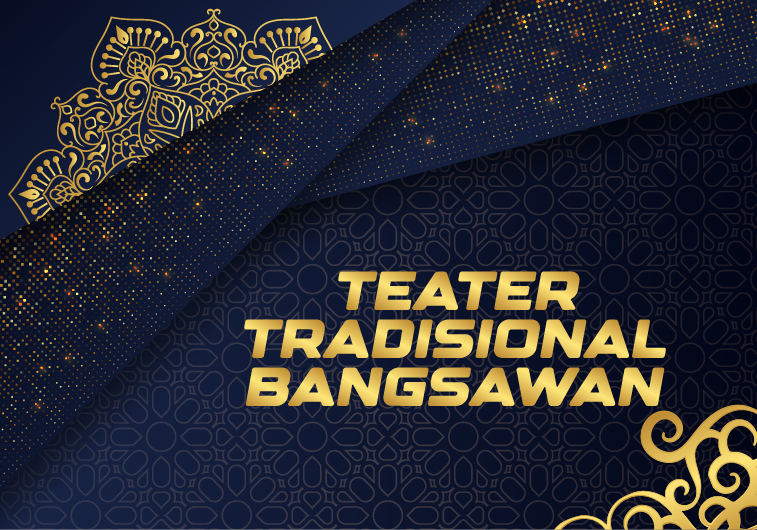ARTS AND CULTURE INFORMATION GATEWAY
Immerse yourself in the colorful world of art and culture! From traditional heritage to contemporary works, discover uniqueness that reflects the nation's identity and identity
TEATER TRADISIONAL BANGSAWAN (WPKL)
Picture
1
Video
No record
Today's Visitor
594
Number of Visitors
2880
Introduction and history
Since Bangsawan was established in Malaysia in the 1880s, theater activities began. It later became very popular and monopolized theater activities in Malaysia for over 70 years. Bangsawan started in Penang and then expanded throughout Malaysia to Indonesia. Bangsawan theater was influenced by the performance of the Wayang Parsi or Mendu, which acted out stories using Hindi and were acted by male and female actors brought from India at that time.
In the 1870s, a drama troupe from India, known as the "Persian Theater Troupe" or "Mendu," came to Penang to perform their plays. This troupe consists of male and female actors who are good at singing, acting, and dancing. The Bangsawan Theater reached its popularity around the end of the 1890s, with its peak beginning in 1911.
However, this theater suffered a decline in the early 1940s during the Japanese colonization of Malaya and began to lose popularity in the 1950s. After that, some small groups still staged Bangsawan in small events by invitation, but this did not last long. In the 1990s, with the existence of the National Theater and Istana Budaya, Bangsawan Theater began to be reproduced by these two agencies to preserve the country's cultural arts.
Bangsawa is again active in efforts to preserve the traditional theater, where performances are becoming more consistent under the support of the government. The National Department of Culture and Arts (JKKN) and Kuala Lumpur City Hall (DBKL) work together through the Semarak Bangsawan program, which started in 2007 and continues until now.
Public Entertainment:
Bangsawan served as a primary form of entertainment, especially from the late 19th century to the mid-20th century, combining acting, singing, music, and dance to captivate audiences from various backgrounds.
Educational Medium:
This theater conveyed stories with moral and social lessons, helping audiences understand important values, ethics, and cultural norms essential for everyday life.
Preservation of Traditional Arts:
Bangsawan plays a role in preserving traditional performing arts that incorporate local cultural elements, making it a valuable heritage for future generations.
Strengthening National Identity:
As a local theatrical art form, Bangsawan symbolizes the identity and heritage of Malaysian society, fostering pride in the country’s culture and traditions.
Reference Source
Bahan Bacaan
Abdul Samad Saleh. (2005).Aspek Lakonan dalam Teater Bangsawan. JKKN.
Tan Sooi Beng (1993). Bangsawan: A Social and Stylistic History of Popular Malay Opera. UK. Oxford Press.
Noraza Abdul Aziz: (2004) Biografi Primadona Bangsawan, Aminah Nani. JKKN
Tokoh (jika ada temu bual tokoh) -
Location
State JKKN Contact Information
Pn. Shariza Isa
Cultural Officer
Jabatan Kebudayaan dan Kesenian Negara Wilayah Persekutuan Kuala Lumpur
Kompleks JKKN WPKL,
Jalan Tun H.S Lee,
50000 Kuala Lumpur
03-20726431
Use the form below to contact the Informant/Figure/Editor/Researcher directly. We will respond to your inquiry as soon as possible!

 Akademik Seni Budaya dan Warisan Kebangsaan. (ASWARA)
Akademik Seni Budaya dan Warisan Kebangsaan. (ASWARA)





